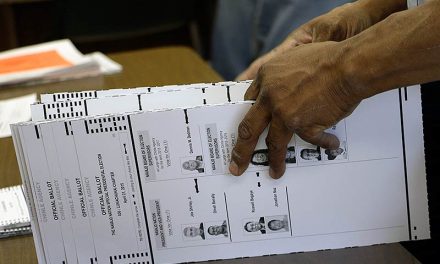
U.S. Senate passes 2-year RECA extension
WINDOW ROCK
The U.S. Senate unanimously passed a two-year extension of the Radiation Exposure Compensation Act last Thursday, allowing individuals harmed by the nation’s early nuclear program more time to apply for compensation.
The act, originally passed in 1990, compensates individuals exposed to radiation from above-ground nuclear weapons tests, as well as those who mined, milled and transported uranium.
Navajo Nation leaders have advocated for the extension for years and expressed appreciation for the bi-partisan congressional support.
“With unanimous consent from the U.S. Senate for the two-year extension, it demonstrates strong bi-partisan support for former uranium miners, downwinders, and many others who have to live with the devastating health effects to this day,” said President Jonathan Nez.
The legislation now heads to the U.S. House of Representatives for consideration. Without reauthorization, the RECA program is scheduled to sunset in July.
Speaker Seth Damon commended the leadership of Sen. Ben Ray Luján, D-N.M., Idaho Sen. Mike Crapo, R-Idaho, and Sen. Mike Lee, R-Utah, for their advocacy.
“The federal government owes a great debt to our former uranium miners, downwinders, and the families suffering from the devastating sickness uranium brings,” said Damon.
Crapo and Luján wrote a bipartisan letter in March urging congressional leadership to extend RECA.
“Between 1945 and 1992, the United States conducted 206 above-ground nuclear weapons tests, releasing harmful radioactive material into the air and blanketing parts of the United States, including New Mexico, Idaho, Colorado, Nevada, Utah, Arizona, Montana, and Guam,” they wrote.
“Communities and individuals living near these test sites, known as ‘downwinders,’ suffer health effects related to the radiation exposure from the tests,” the letter said.
According to Lee, RECA has awarded over $2.4 billion in benefits to more than 38,000 claimants in Nevada, Utah, and elsewhere.
“Preserving and expanding the RECA program to provide long overdue justice to New Mexico downwinders and uranium workers is one of my top priorities in Congress,” said Luján. “Now, the House must swiftly pass this legislation and send it to President Biden’s desk.”
Harmful legacy
Nez said, in addition to the two-year extension, the Navajo Nation continues to urge Congress to go further to include all downwinders, to expand eligibility for coverage to include additional uranium workers, types of cancers and other radiation-related illnesses, and to increase the compensation cap to a minimum of $200,000 per individual.
Post-71 Uranium Workers, a group of former uranium miners, millers, ore haulers, and drillers who have documented life-threatening health conditions among people who worked in the uranium industry after 1971, have also testified numerous times to Navajo and congressional leadership.
“We send our appreciation to our Post-71 miners and their families for being advocates for this RECA extension,” said Delegate Amber Kanazbah Crotty. “Many of our women and children witnessed the sickness uranium exposure brought into their households. So many of our relatives dug up, breathed the dust, and were poisoned by the radiation.”
Speaker Seth Damon said the short-term extension provides lawmakers more time to seek a long-term solution that would extend RECA to 2040 along with other expansions.
“For decades, the communities I represent have been advocating for those affected by uranium exposure, cancer, and the sickness it brings to communities,” said Delegate Thomas Walker. “The uranium legacy has only caused damage, harm, and loss of life for the Navajo people.”
Last year, the Navajo Nation Council requested a congressional hearing to be conducted within the Navajo Nation on the long-term effects of uranium on the health of the Navajo people.
“Many of the uranium miners, truck drivers, and mill operators are no longer here with us because of uranium exposure,” said Delegate Kee Allen Begay. “Yet, they leave behind families who are sick and need our help. Compensation should not end here but be extended to all members of our Navajo families exposed to the uranium legacy.”








 Highway 264,
Highway 264, I-40, WB @ Winslow
I-40, WB @ Winslow